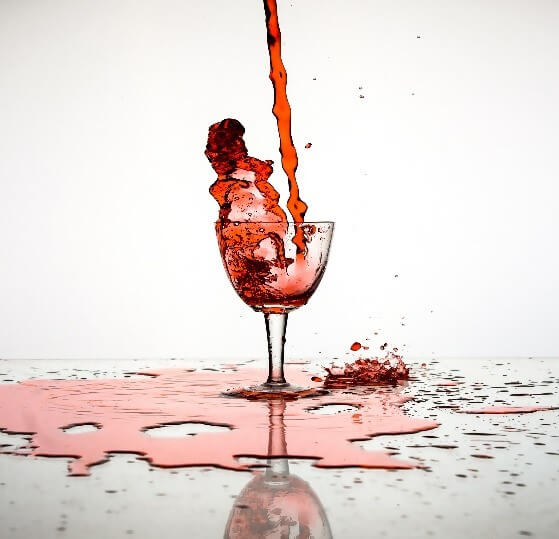You’re going to be spending plenty of money to remodel your kitchen – refacing or replacing cabinets, installing modern appliances, and replacing old laminate countertops with something more modern. So it’s natural that you’d be concerned about choosing products that can withstand the wear and tear of a busy kitchen.
Countertops and their ability to stand up to normal use become a huge concern when you’re doling out cash for a remodel. You want to know which will hold up the best and last the longest, and which ones are less likely to stain.
Stain-proof vs. stain-resistant
It’s important to distinguish the difference between stain-proof and stain-resistant.
When something is stain-proof, it means it WILL NOT stain. Period. You can spill things on it and even if you don’t wipe it up immediately, there will be no residual staining.
Quartz countertops are NOT stain-proof, but they are stain-resistant. If someone tells you your quartz countertops will NEVER stain, that’s not actually true. However, because quartz is a non-porous mineral – unlike marble and granite – liquids from spills are not easily absorbed, which means staining is less likely. Conversely, granite and marble, especially when they aren’t properly sealed, can stain quite easily.
Nonetheless, it’s best not to leave spills lying around, especially when it’s tea, wine, or something else high in tannins, which are the cause of many kitchen stains. Clean up spills as soon as possible and be sure your countertops avoid direct contact with heat, which can also cause staining or discoloration.

Things that DO stain your quartz countertops
Because about 10 percent of manufactured quartz countertops contain resins and pigments that are best described as petroleum by-products, certain substances – when in contact with the countertops – can cause hard-to-remove stains. Most notably, these include permanent ink markers, some alkaline chemicals, and caustic sodium-hydroxide containing products like chlorine bleach or drain cleaners.
Removing stains
In the rare case that stains occur on your quartz countertops, wipe down the area with a quartz cleaner and a non-abrasive cleaning pad. If the stain is caused by a substance such as paint or nail polish or a food that has dried on the surface, scrape the area first with a plastic knife or other plastic tool then wipe.
Remember, quartz countertops can be easy-to-maintain and also a great value with just a little regular care. Take time to clean up after food preparation and meals and avoid direct contact with liquids as much as possible.

